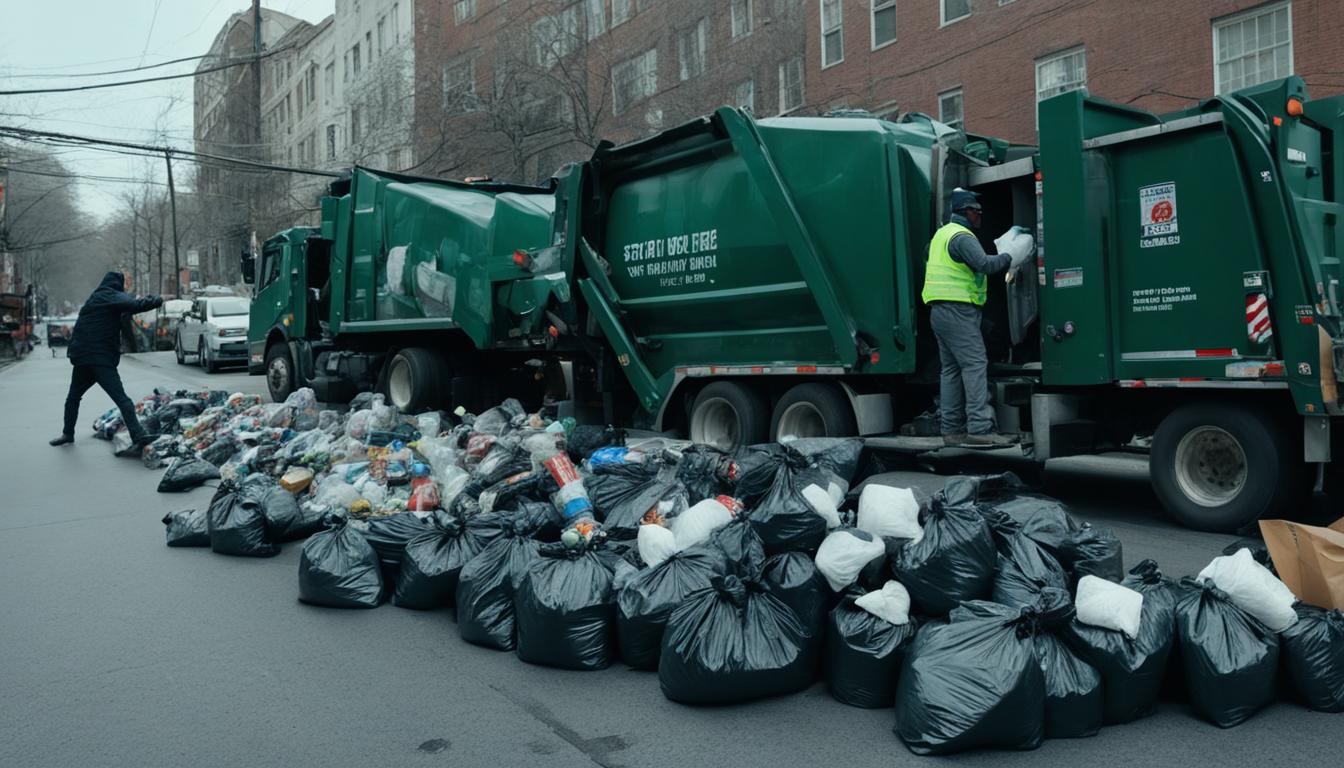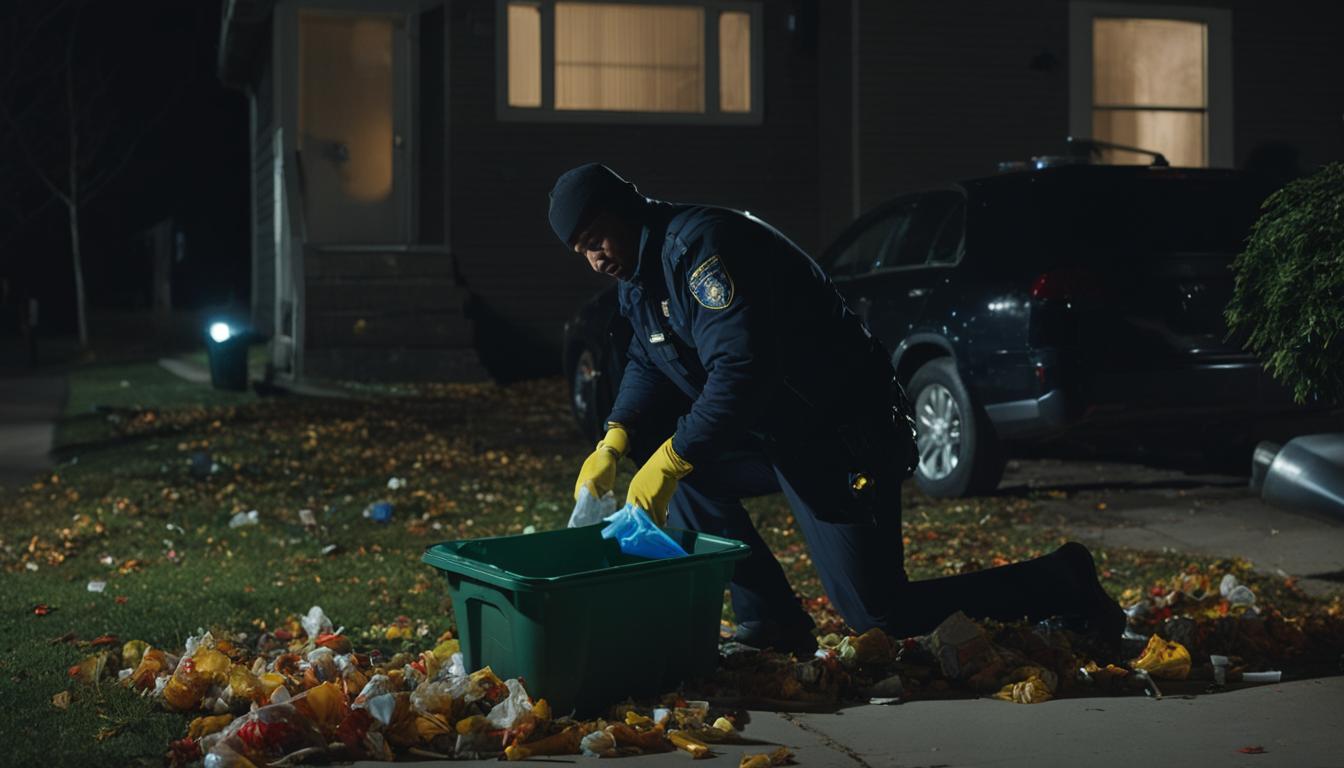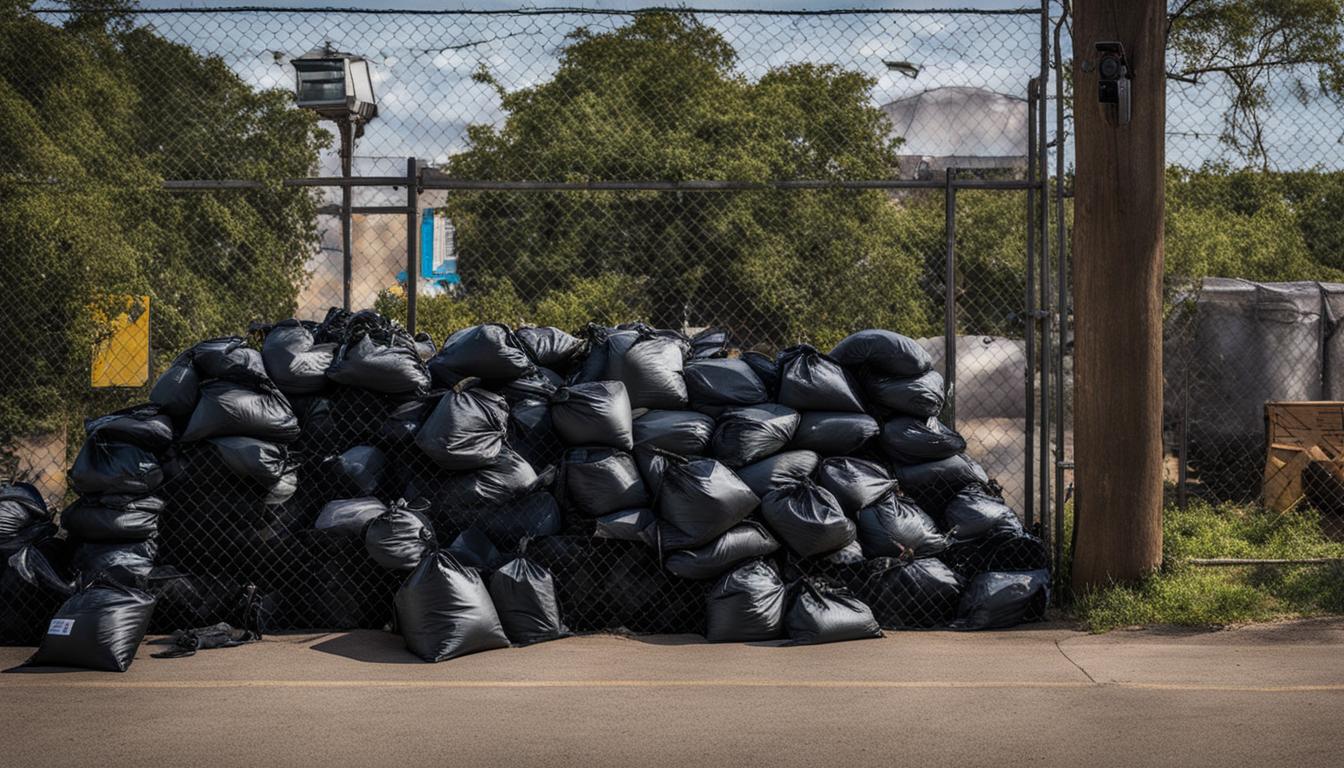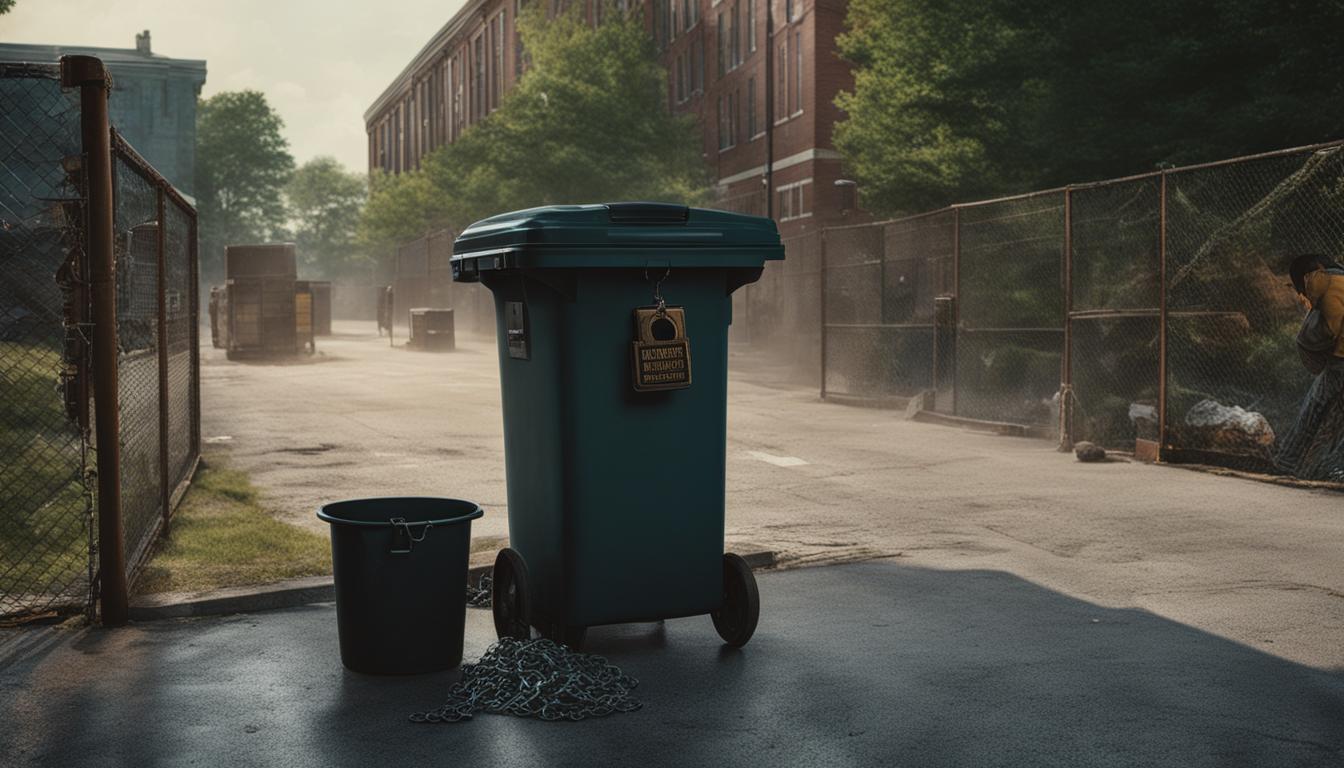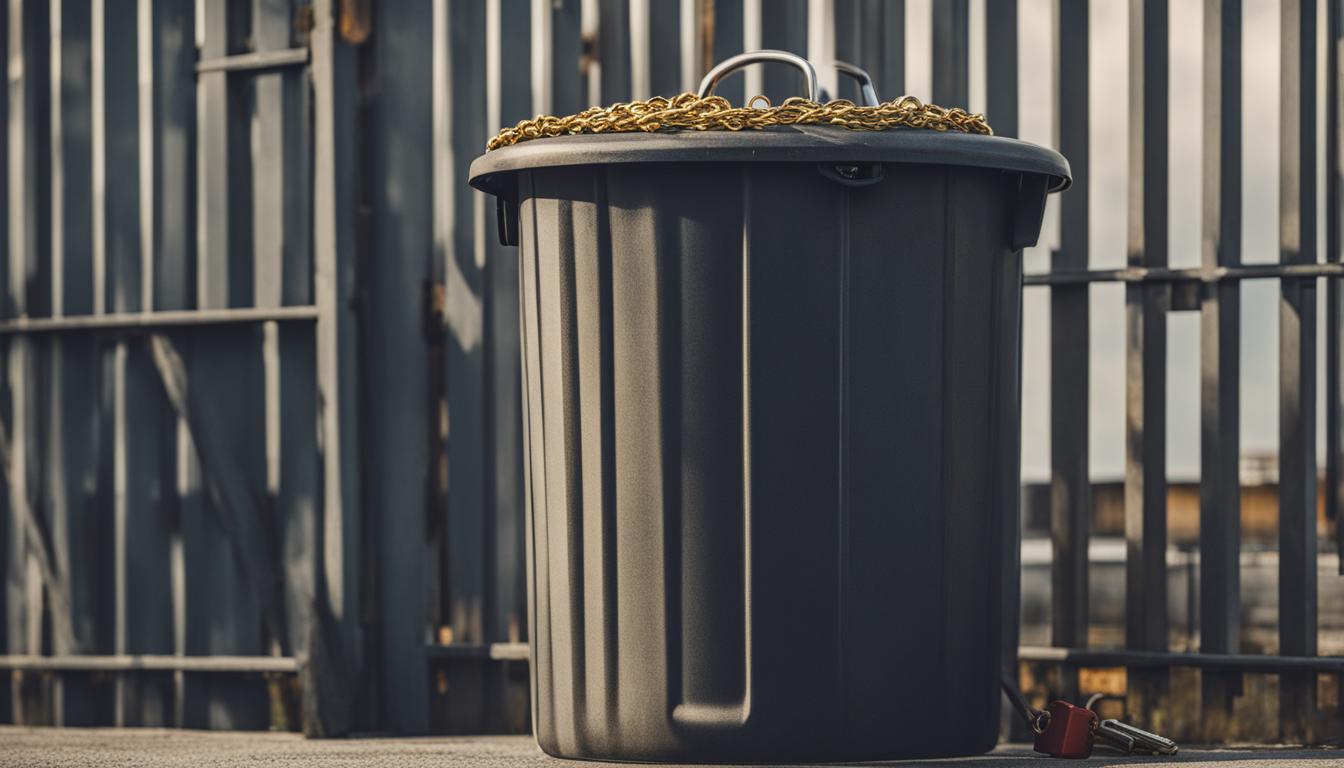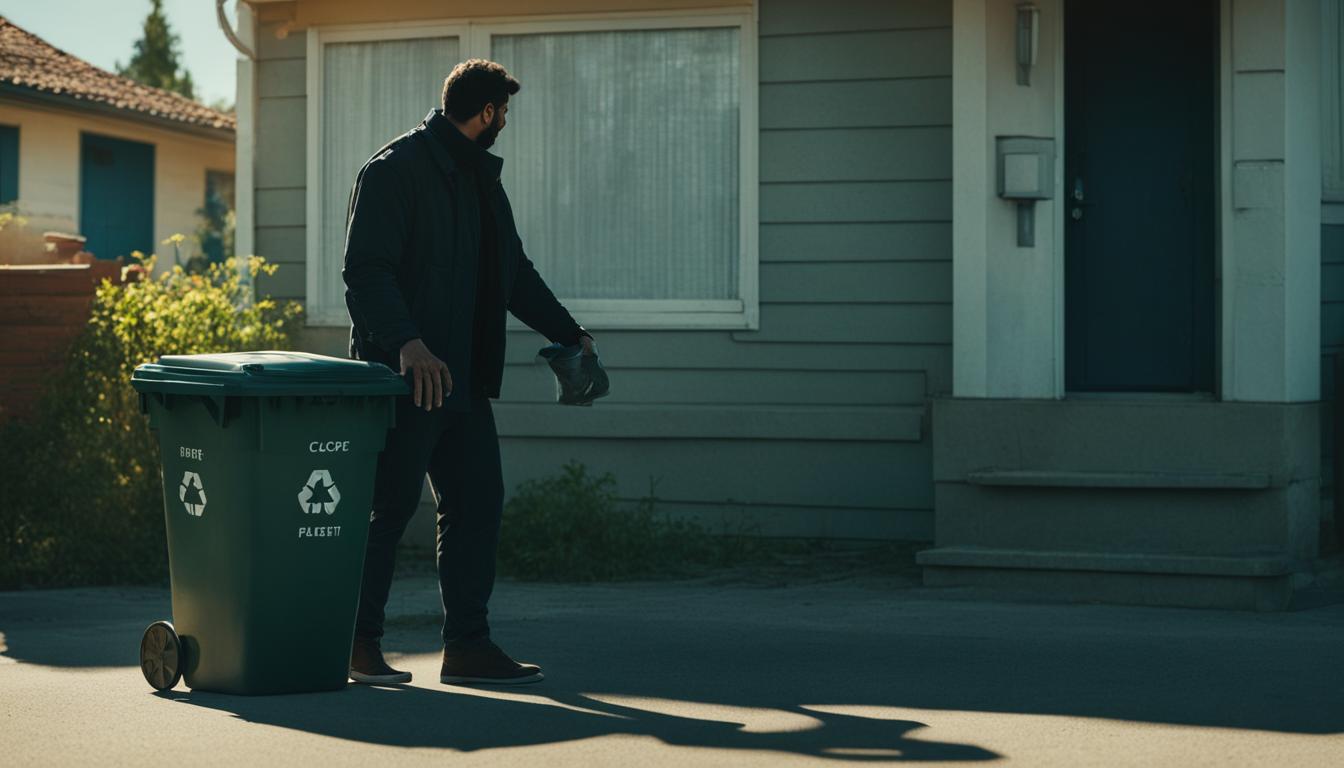Disclosure: This Post Contains Affiliate Links; We earn a commission on purchases.
Going through someone’s trash, also known as dumpster diving, is a common practice that raises questions about privacy and legality. If you’re wondering about the laws and regulations surrounding dumpster diving in Georgia, you’ve come to the right place. In this article, we’ll explore the trash laws in Georgia, privacy rights, dumpster diving laws, garbage disposal regulations, legal protections for discarded items, and Georgia waste management regulations. Understanding these aspects is crucial for determining whether someone can legally go through your trash in Georgia.
Key Takeaways
- Dumpster diving is not illegal in Georgia, but there are laws and regulations to consider.
- Once your trash is placed on the curb for collection, you no longer have an expectation of privacy regarding its contents.
- Georgia has specific waste management regulations in place to protect the environment and public health.
- While there are legal protections for certain types of discarded items, personal information should be properly disposed of to prevent identity theft.
- Understanding the laws and regulations surrounding trash disposal is essential to avoid any legal issues.
Trash Laws in Georgia
When it comes to trash disposal in Georgia, specific laws and regulations are in place to govern this process. Understanding these laws is crucial to ensure compliance and avoid potential legal issues. Once you place your trash out for collection, you no longer have an expectation of privacy regarding its contents. This means that anyone, including the general public, can legally go through your trash if it is left on the curb.
However, it is important to note that dumping trash on the street or on private property without proper authorization is illegal. Proper waste management and disposal are vital for maintaining a clean and healthy environment.
It is essential for individuals to be aware of the trash laws and regulations in Georgia to adhere to proper disposal practices and prevent any violations. By following these regulations, we can contribute to the overall well-being of our communities and protect the environment.
Key Points:
- Georgia has specific laws and regulations regarding trash disposal.
- Placing trash on the curb eliminates the expectation of privacy, allowing anyone to legally go through it.
- Dumping trash on the street or private property without authorization is illegal.
- Compliance with waste management regulations is crucial for protecting the environment and public health.
| Trash Laws in Georgia |
|---|
| Once trash is placed on the curb for collection, there is no expectation of privacy. |
| Dumping trash on the street or private property without authorization is illegal. |
Privacy Rights in Georgia
While individuals in Georgia do not have an explicit expectation of privacy when it comes to their trash, they still have certain privacy rights that are protected under the law. The act of going through someone’s trash can potentially reveal personal and private information about an individual, which can then be used for various purposes, including identity theft and other illegal activities.
It is important to note that although going through someone’s trash may not be illegal in itself, there are exceptions and limitations. If an individual commits a crime during the process of going through trash, such as trespassing on private property or stealing discarded items, they could face legal consequences under Georgia’s trespassing laws.
Additionally, if someone is verbally warned not to trespass or go through another person’s trash and they continue to do so, their actions could be considered a violation of the other person’s privacy rights, leading to legal repercussions.
“The right to privacy is a fundamental aspect of individual autonomy and personal freedom. While privacy rights in relation to trash may not be as strong as in other areas, individuals should still be cautious about protecting their personal information from falling into the wrong hands.”
Georgia’s Trespassing Laws
Georgia has specific laws in place to protect individuals from unauthorized entry onto private property. In the context of going through trash, these laws come into play when someone goes beyond the usual boundaries of public access, such as entering onto a person’s property without permission or continuing to trespass after being verbally warned not to do so.
Under Georgia’s trespassing laws, individuals who engage in trespassing can be subject to criminal charges, which may include fines, probation, or even imprisonment depending on the severity of the offense. These laws help safeguard privacy rights and deter unwanted intrusion onto private property.
Protecting Privacy While Disposing of Trash
Given the potential risks associated with others going through your trash, it is important to take steps to protect your privacy. Consider the following measures when disposing of your trash:
- Shred any documents or materials containing personal information before discarding them.
- Avoid throwing away items that could be easily used to commit identity theft, such as credit card statements or prescription bottles.
- Be mindful of any sensitive information that might be visible in your trash, such as boarding passes or envelopes with your name and address.
- Consider using secure disposal methods, such as destroying hard drives or using confidential waste disposal services for certain items.
By being proactive in safeguarding your personal information and understanding your privacy rights, you can help mitigate the risk of privacy invasion through trash digging.
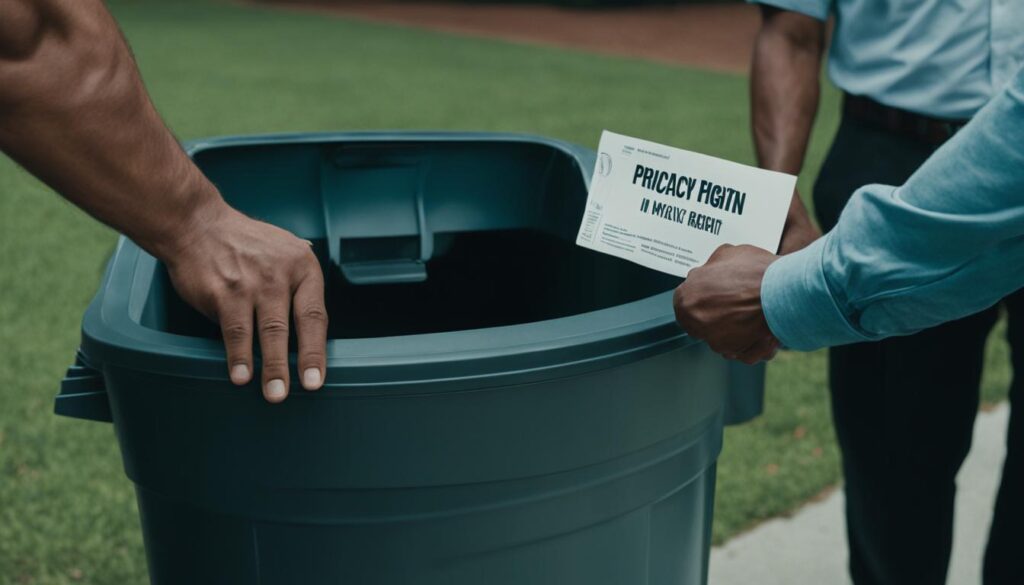
| Privacy Rights in Georgia | Trespassing Laws | Protecting Privacy |
|---|---|---|
| While individuals do not have an explicit expectation of privacy for their trash, they still have certain privacy rights that can be violated through unauthorized access. | Georgia’s trespassing laws protect individuals from unauthorized entry onto private property, including situations where someone goes through another person’s trash without permission. | Take proactive steps to protect your privacy while disposing of trash, such as shredding documents containing personal information and being mindful of sensitive materials that could pose identity theft risks. |
Dumpster Diving Laws in Georgia
When it comes to dumpster diving, Georgia does not have specific laws that make it illegal. The U.S. Supreme Court decision in California vs. Greenwood established that discarded items in the “outside curtilage” of a property are considered public domain and can be legally accessed by anyone. This means that individuals can legally go through trash that has been placed on the curb for collection.
However, it’s important to note that there are certain circumstances where legal consequences may arise. If someone commits a crime while going through abandoned trash or is warned not to trespass but continues to do so, they could face legal consequences under Georgia’s trespassing laws.
While dumpster diving itself is not illegal, it’s crucial for individuals to be mindful of their actions and respect private property rights. It’s recommended to exercise caution and be aware of any specific local ordinances or regulations that may apply in certain areas.
Legal Protections for Discarded Items
Although individuals may not have a reasonable expectation of privacy when it comes to their discarded items, there are legal protections in place for certain types of discarded items. Personal information such as social security numbers, bank statements, and medical records should be properly disposed of to protect against identity theft. It’s also important to note that companies and organizations have legal obligations to protect sensitive information and ensure proper disposal of such items.
By being aware of these legal protections and ensuring the appropriate disposal of sensitive information, individuals can minimize the risk of identity theft and safeguard their personal privacy.
Waste Management Regulations in Georgia
Georgia has implemented specific waste management regulations to ensure the proper disposal and handling of trash. These regulations are in place to protect the environment and maintain public health. It is crucial to adhere to these regulations when disposing of trash to avoid any legal issues.
According to the waste management regulations in Georgia, trash should be properly disposed of in designated bins or containers. Dumping trash on the street or private property without authorization is strictly prohibited. The proper disposal of trash helps prevent pollution, the spread of diseases, and maintains the cleanliness of the surroundings.
By following waste management regulations, individuals contribute to the preservation of natural resources and the overall well-being of communities. Proper waste disposal ensures that harmful substances and materials are appropriately handled, minimizing their negative impact on the environment.
Benefits of Adhering to Waste Management Regulations:
- Promotes environmental sustainability
- Prevents pollution of soil, water, and air
- Reduces the risk of spreading diseases
- Maintains cleanliness and hygiene in communities
- Protects wildlife and biodiversity
By responsibly disposing of trash and adhering to waste management regulations, individuals contribute to a cleaner and healthier environment for present and future generations.
| Benefits of Adhering to Waste Management Regulations |
|---|
| Promotes environmental sustainability |
| Prevents pollution of soil, water, and air |
| Reduces the risk of spreading diseases |
| Maintains cleanliness and hygiene in communities |
| Protects wildlife and biodiversity |
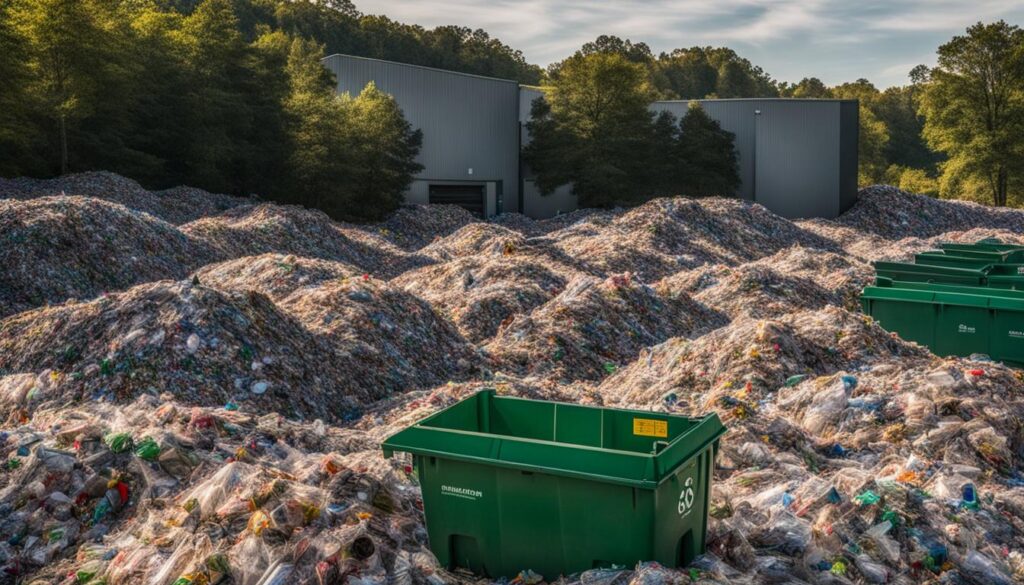
Legal Protections for Discarded Items
While individuals may not have a reasonable expectation of privacy when it comes to their discarded items, there are legal protections in place for certain types of discarded items. It is important to be aware of these legal protections to ensure the proper disposal and protection of sensitive information.
Protecting Personal Information
One of the key legal protections for discarded items is the safeguarding of personal information. Items such as social security numbers, bank statements, and medical records contain sensitive information that can be exploited by identity thieves if not properly disposed of.
“Properly disposing of personal information is crucial to protect against identity theft. Individuals should shred documents containing personal information before discarding them to prevent unauthorized access.”
Companies and organizations also have legal obligations to protect sensitive personal information. They must ensure that employees handle and dispose of such information securely, following established protocols and procedures.
Waste Management Regulations
Another aspect of legal protections for discarded items is the existence of waste management regulations. These regulations aim to ensure proper disposal and handling of trash to protect the environment and public health. Individuals should adhere to these regulations when disposing of their items to avoid legal issues.
Examples of Legal Protections for Discarded Items
| Type of Discarded Item | Legal Protection |
|---|---|
| Personal documents with sensitive information | Shredding before disposal |
| Electronic devices | Secure data wiping or destruction |
| Expired medications | Proper disposal at authorized collection sites |
| Hazardous materials | Safe disposal according to local regulations |
By understanding and following these legal protections for discarded items, individuals can take the necessary steps to safeguard their personal information, protect the environment, and comply with waste management regulations.
Conclusion
In conclusion, it is not illegal for someone to go through your trash in Georgia. However, there are certain laws and regulations that need to be considered to determine the legality of this action. Georgia has specific trash laws, privacy rights, dumpster diving laws, and waste management regulations in place to govern the act of going through someone’s trash.
While Georgia does not have laws that directly make dumpster diving illegal, there are legal protections for discarded items that individuals should be aware of. Personal information such as social security numbers, bank statements, and medical records should be properly disposed of to protect against identity theft.
Furthermore, it is important to note that trespassing laws in Georgia may come into play if someone commits a crime during the act of going through trash or is warned not to trespass but continues to do so. Compliance with waste management regulations is also crucial to avoid any legal issues related to garbage disposal.
Source Links
- https://residentnews.net/2020/04/02/is-it-legal-for-someone-to-go-through-your-trash/
- https://www.legalmatch.com/law-library/article/is-dumpster-diving-illegal.html
- https://www.local10.com/news/2015/01/06/is-it-legal-to-take-items-out-of-someones-trash/

Subscribe to Our Newsletter

